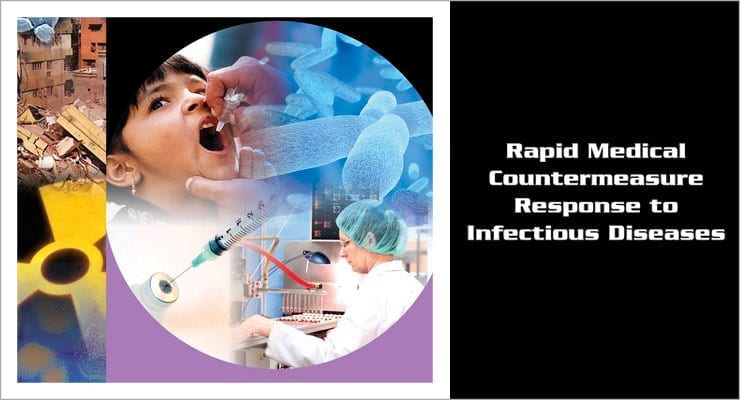Sustaining public and private investment in the development of medical countermeasures before an emerging infectious disease becomes a public health emergency in the U.S. has been extremely challenging.
Interest and momentum peak during a crisis and wane between events, and there is little interest in disease threats outside the United States until they impact people stateside.
“Rapid Medical Countermeasure Response to Infectious Diseases: Enabling Sustainable Capabilities Through Ongoing Public- and Private-Sector Partnerships,” a new report published this week by the National Academies Press, outlines the findings of an Institute of Medicine workshop convened in March 2015 to discuss how to achieve a more nimble medical countermeasure capability for new and emerging threats.
Public- and private-sector stakeholders examined recent efforts to prepare for and respond to outbreaks of Ebola Virus Disease, pandemic influenza, and coronaviruses from policy, budget, and operational standpoints.
Participants discussed the need for rapid access to MCM to ensure national security and considered strategies and business models that could enhance stakeholder interest and investment in sustainable response capabilities.
Key themes emerged from the workshop, including the following:
- Emerging infectious disease preparedness needs to be viewed as an issue of U.S. national security
- Broader, earlier engagement of innovative pharmaceutical, biotech and diagnostics companies
- Better engagement of animal disease surveillance experts
- Improving active cooperation with other countries, such as virus sample sharing and increased protocol publishing
- Sustaining scientific expertise, manufacturing pipelines and partnerships in-between the highly active epidemic periods
- Holistic threat assessment approach, considering not only biological properties of viruses and hosts, but also the social or behavioral contexts for disease emergence
- Overcoming cumbersome and laborious traditional government contracting mechanisms for medical countermeasure development
- Better prioritized framework to determine when a medical countermeasure is required, versus when more traditional public health measures (masks, vector control) and to which stage of development (seed stocks, pilot lots, stockpiles)
The full report is available here.


